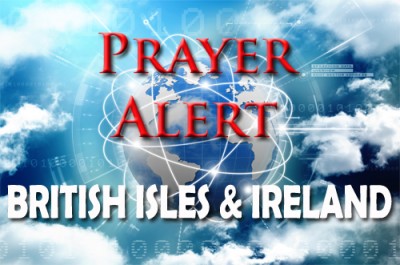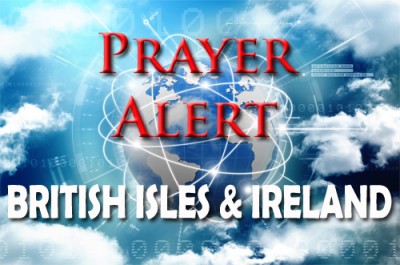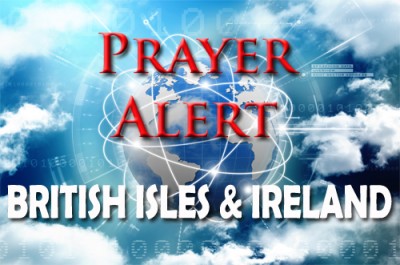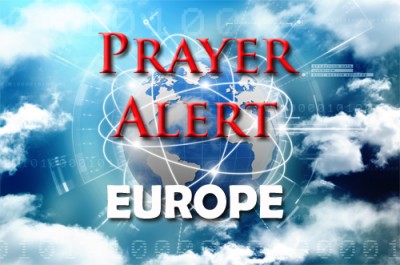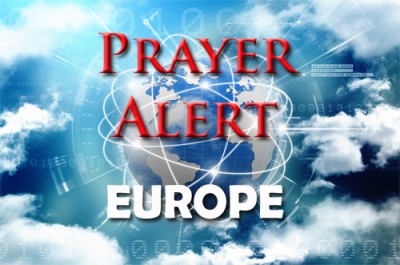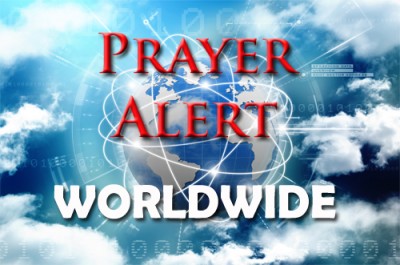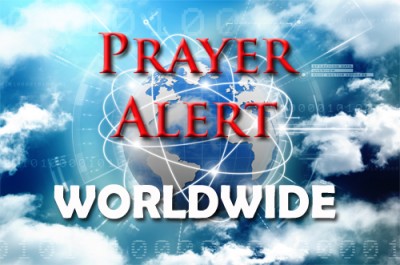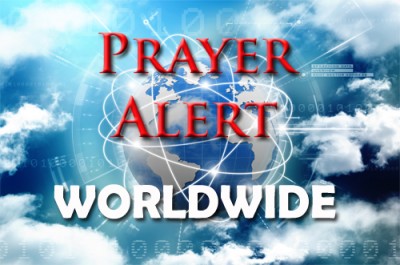Government needs to stand up for Christians
The UK will hold a general election on 8 June, which will put in place a new government. Barnabas Fund is calling on all political parties to make specific commitments to help persecuted Christians. It has launched a manifesto, endorsed by church leaders and peers from across the political spectrum, which calls on the next government to take specific actions to address the genocide of Christians in the Middle East. We are called to pray and ask that the Lord - who is God of kings and governments (Daniel 2:47) - to establish in authority those who will act justly. Pray that the Government will give priority to responding to the persecution of Christians, instead of focusing on ‘equality’ issues which see anti-Christian discrimination sidelined.
Attitudes to abortion
Figures about public attitudes to abortion, particularly women’s attitudes, suggest a lot of unease with the current abortion law. Some suggest that this unease is to do with advances in prenatal screening. It is hard to compare a six-month cut-off limit for abortions with ubiquitous images of foetuses at twelve weeks looking embarrassingly, palpably, human. They may not be capable of surviving outside the womb - but they’re human all right. On the most important issue, the period during which abortion is legal, a large majority of women (7 out of 10) are in favour of reducing the time-limit, with nearly six in ten in favour of a limit of 16 weeks or fewer. There is also a large majority wanting parents to be informed when their underage daughter has an abortion, and a very large majority in favour of a ban on sex-selective abortions.
Power to ban jihadists used just once
Home secretary Amber Rudd has said that a key power intended to control British jihadists has only been used once, despite the return of about 350 fighters from IS. Under Temporary Exclusion Orders (TEOs), British citizens suspected of fighting abroad can be banned from returning to the UK for up to two years. Their travel documents can be cancelled, and they can be refused re-entry unless they agree to restrictions such as enrolling on a deradicalisation programme or reporting to police on a regular basis. The sole subject of a TEO is believed to be a male who fought for IS. More TEOs are under consideration, but ‘no more than four or five’, according to sources. To date dozens of suspects have had passports confiscated for national security reasons, and seven suspects living in the UK are subjected to TPIMs (Terrorism and Prevention and Investigation Measures), which restrict their movements and activities.
Germany: more births, but fewer midwives
Since 2012 the German birth rate has been increasing. In 2014 the Huffington Post reported petitions circulating to warn the public about the threat to the midwifery profession. They called on expectant families to put pressure on the German government’s health minister to come up with a solution to the massive increases in insurance rates on midwives, especially those who assist in birth. The July 2017 German Intercessors newsletter requests prayer for midwives’ working conditions. ‘Anyone looking for a midwife before childbirth must expect many refusals. More and more freelance midwives are leaving the profession. They cannot afford the unbelievably high contributions for personal liability insurance, even though subsidies are now provided by the state.’ The midwife association is asking for a fund to cover liabilities for self-employed midwives. Full-time salaried midwives have another problem; their working conditions allow them no time to rest.
Belgium: EU summit 1-2 June
Disillusioned with protectionism and the US government’s rejection of low-carbon economic models, the European Union hopes that China will stick with the climate change agreements made during the summit in in Brussels. China has a very big air-pollution problem, especially in Beijing. Also the policy for China’s domestic economic development is very clearly a green economy policy. Preventing dangerous climate change is a key priority for the EU. Europe is working hard to cut its greenhouse gas emissions substantially, while encouraging other nations and regions to do likewise. Key EU targets for 2020 are a 20% cut in greenhouse gas emissions compared with 1990; 20% of total energy consumption from renewable energy; and 20% increase in energy efficiency.
Extreme weather: Sri Lanka and Bangladesh
The worst monsoon since 2003 hit Sri Lanka after two months of drought. 194 people died, and the toll is expected to rise. 99 people are missing, and 112 injured. Over half a million people are affected. Red Cross, police, foreign aid workers, and military are giving first aid, organising search and rescue missions, and distributing food and water. Homes are uninhabitable. Barnabas Fund reported that 200 churches and 5,000 Christian families are affected. However, Christians have not sought shelter in relief camps, fearing persecution, especially those in Buddhist temples. On 30 May Cyclone Mora’s winds of 85 mph lashed Bangladesh forcing the evacuation of 2.5 million people, killing at least six, destroying 20,000 houses and felling hundreds of trees. Meanwhile President Trump is expected to withdraw from the Paris climate agreement, according to two senior US officials familiar with his plans - a major reversal of the previous administration's efforts on climate change. See:
Afghanistan: Kabul bombing
Ninety died and 400 were injured when a truck bomb shook Kabul's diplomatic quarter, in one of the worst terror incidents to hit Kabul. People struggled to deal with the number of casualties. The damage was enormous. The majority of the dead were civilian men, women and children. In recent years jihadist groups have called for attacks on civilians during Ramadan, which began on 27 May. The explosion raises questions about security procedures. However, on 1 June the president told the BBC Today programme that thirty attacks are foiled for every one that gets through. Three years after David Cameron declared ‘mission accomplished’ and Barack Obama said the American war in Afghanistan was over, this carnage demonstrates the opposite. The West does not want another escalating war, while generals on the ground call for more troops. In 1989 foreign powers turned their backs on Afghanistan, which enabled the Taliban to burgeon. Now, the country cannot be allowed to disintegrate again in the face of IS, with the internet accelerating the dissemination of both ideology and violence. See
Israel: ‘third intifada’
A recent wave of terror has brought fear to people in Jerusalem and the surrounding areas. Many are fearful of exposing their families to danger. Tourism is in decline as many people cancel holidays, causing negative effects on the Israeli economy. This damages small businesses and the families they support. The attacks, which many have called the ‘third intifada,’ have worsened a major ongoing problem. Recent reports show that almost one third of Israeli families live below the poverty line. Thousands of babies frequently miss meals or have their feed portions diluted, causing an increased likelihood of experiencing significant problems in their physical and mental growth. If this continues, one-third of Israel’s population will enter adulthood under these circumstances. Pray for underprivileged families to receive enough support from government programmes and NGOs to enable them to manage their basic living expenses. May the children and babies receive the food, clothing and education they need.

